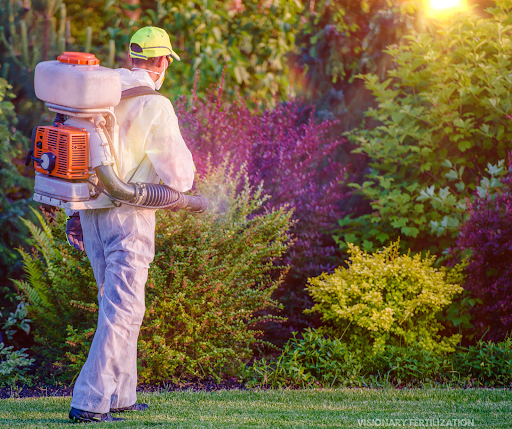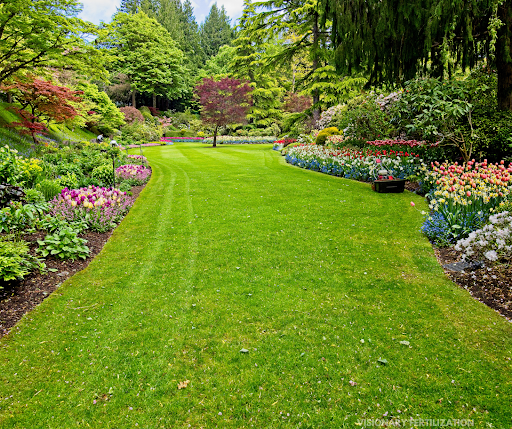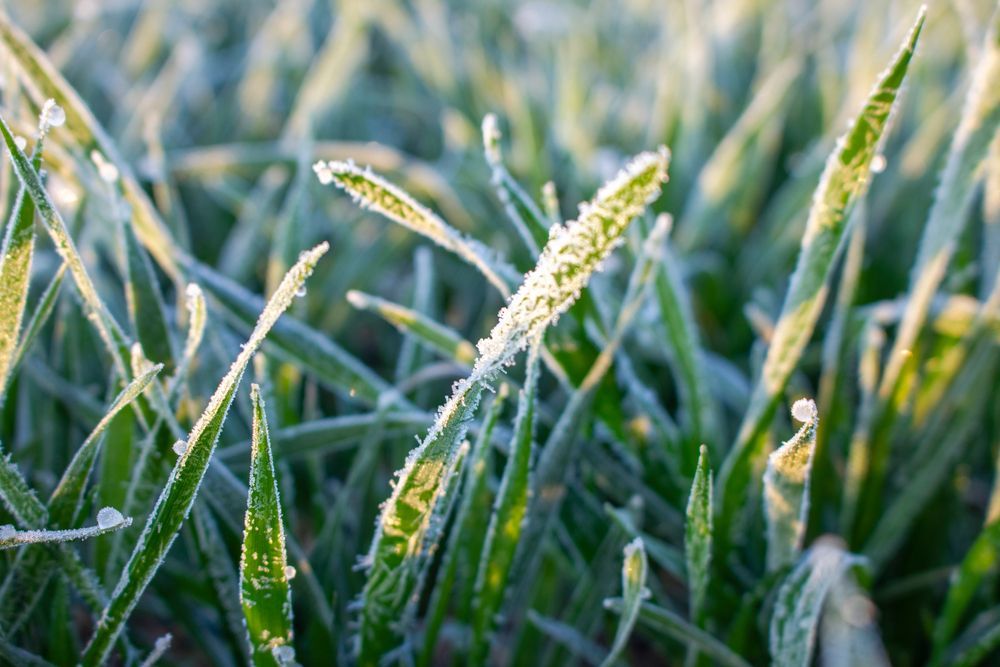VETERAN OWNED
January 17, 2025
What Agronomic Zone Are You In?
Understanding your agronomic zone is crucial for creating and maintaining a healthy, thriving lawn. This educational guide will explain what agronomic zones are, why they matter, and how you can determine which zone you’re in—particularly for homeowners in Shelby Township, MI. With this knowledge, you can tailor your lawn care practices to achieve optimal results.
What Are Agronomic Zones?
Agronomic zones are defined areas that share similar environmental factors, such as soil type, climate, and vegetation. These zones help identify the best conditions for growing specific plants, including grasses and other lawn species.
While often confused with USDA hardiness zones—which focus on a plant’s ability to survive winter temperatures—agronomic zones consider additional factors, such as:
- Soil pH and structure
- Annual precipitation
- Seasonal temperature fluctuations
- Sunlight availability
Why Are Agronomic Zones Important?
Lawn care is not a one-size-fits-all approach. Knowing your agronomic zone ensures that:
- Grass Selection: You choose grass varieties best suited to your area’s conditions.
- Fertilization Schedules: Applications align with seasonal and climatic requirements.
- Irrigation Practices: Watering is optimized for local rainfall and evaporation rates.
By understanding your zone, you can prevent common lawn issues like poor growth, disease susceptibility, and water wastage.
How Agronomic Zones Work
Agronomic zones are determined by analyzing several environmental factors:
1. Climate
- Temperature Extremes: The range between the hottest summer days and the coldest winter nights impacts plant selection and care schedules.
- Rainfall Patterns: Regular precipitation supports cool-season grasses, while arid regions benefit from drought-resistant varieties.
2. Soil Composition
- Soil pH: Some grasses thrive in acidic soil, while others prefer neutral or alkaline conditions.
- Nutrient Levels: Understanding soil fertility helps you plan effective fertilization strategies.
3. Sunlight Exposure
- Lawns in shaded areas have different needs compared to those in full sun. Agronomic zones account for sunlight variability.
What Agronomic Zone Is Shelby Township, MI In?

Shelby Township, MI, falls within USDA Hardiness Zone 5b and is characterized by cold winters and warm summers. However, its agronomic zone is influenced by factors such as:
- Cool-Season Climate: Ideal for grasses like Kentucky bluegrass, perennial ryegrass, and fine fescue.
- Moderate Rainfall: Average annual precipitation of about 33 inches supports regular lawn irrigation practices.
- Loamy Soil: Common in Michigan, this soil type drains well while retaining necessary nutrients.
These conditions make Shelby Township well-suited for lush, green lawns with proper care and maintenance.
How to Determine Your Agronomic Zone
There are several methods to find your agronomic zone:
1. USDA Hardiness Zone Maps
The USDA Hardiness Zone map is a starting point. While it focuses on winter temperatures, it offers insights into regional climate trends.
2. Local Resources
Reach out to local extension offices or lawn care professionals. They can provide tailored advice specific to Shelby Township.
3. Soil Testing
A soil test identifies pH levels, nutrient content, and soil structure. This information is crucial for understanding your lawn’s needs.
4. Visionary Fertilization’s Expertise
Our team specializes in identifying the agronomic needs of Shelby Township lawns. We’ll evaluate your soil, climate, and lawn health to recommend the best care practices.
Tailoring Lawn Care to Your Agronomic Zone
Once you know your agronomic zone, here’s how to optimize your lawn care:
1. Choose the Right Grass
Cool-season grasses, such as:
- Kentucky Bluegrass: Offers a dense, green lawn but requires regular maintenance.
- Perennial Ryegrass: Grows quickly and is ideal for overseeding.
- Fine Fescue: Low-maintenance and shade-tolerant.
2. Adjust Fertilization Schedules
- Apply nitrogen-rich fertilizers in spring and fall when cool-season grasses are most active.
- Use slow-release formulas to prevent over-fertilization.
3. Water Wisely
- Water deeply but infrequently to encourage deep root growth.
- Irrigate early in the morning to reduce water loss from evaporation.
4. Aerate the Soil
- Aeration reduces soil compaction and improves nutrient uptake. Schedule aeration in the fall for cool-season lawns.
5. Manage Weeds and Diseases
- Use pre-emergent herbicides in early spring to control weeds.
- Treat fungal diseases promptly with fungicides suited to your zone.
Common Challenges in Shelby Township’s Agronomic Zone
1. Winter Damage
Cold winters can stress grass roots. Prevent damage by:
- Applying a winterizing fertilizer in late fall.
- Avoiding heavy foot traffic on frozen grass.
2. Summer Stress
Hot, dry summers can lead to brown patches. Combat this with:
- Regular watering schedules.
- Temporary shade for newly seeded areas.
3. Pest Infestations
Michigan lawns are prone to pests like grubs. Address this with:
- Preventative grub control treatments in late summer.
- Encouraging natural predators like birds.
Why Visionary Fertilization Is Your Trusted Partner
At Visionary Fertilization, we’re dedicated to helping Shelby Township homeowners achieve beautiful, healthy lawns. Our team combines scientific expertise with years of local experience to offer:
- Customized fertilization plans
- Professional soil testing
- Expert aeration and overseeding services
Whether you’re new to lawn care or seeking advanced solutions, we’ll guide you every step of the way.
Take the First Step Toward a Healthier Lawn
Don’t leave your lawn care to chance. Let Visionary Fertilization help you understand your agronomic zone and develop a personalized care plan. Visit our website or call us today at (586) 525-7992 to schedule your consultation. Together, we’ll create a lawn you’ll love.


All Rights Reserved | Visionary Fertilization | Powered By Aletheia Digital


